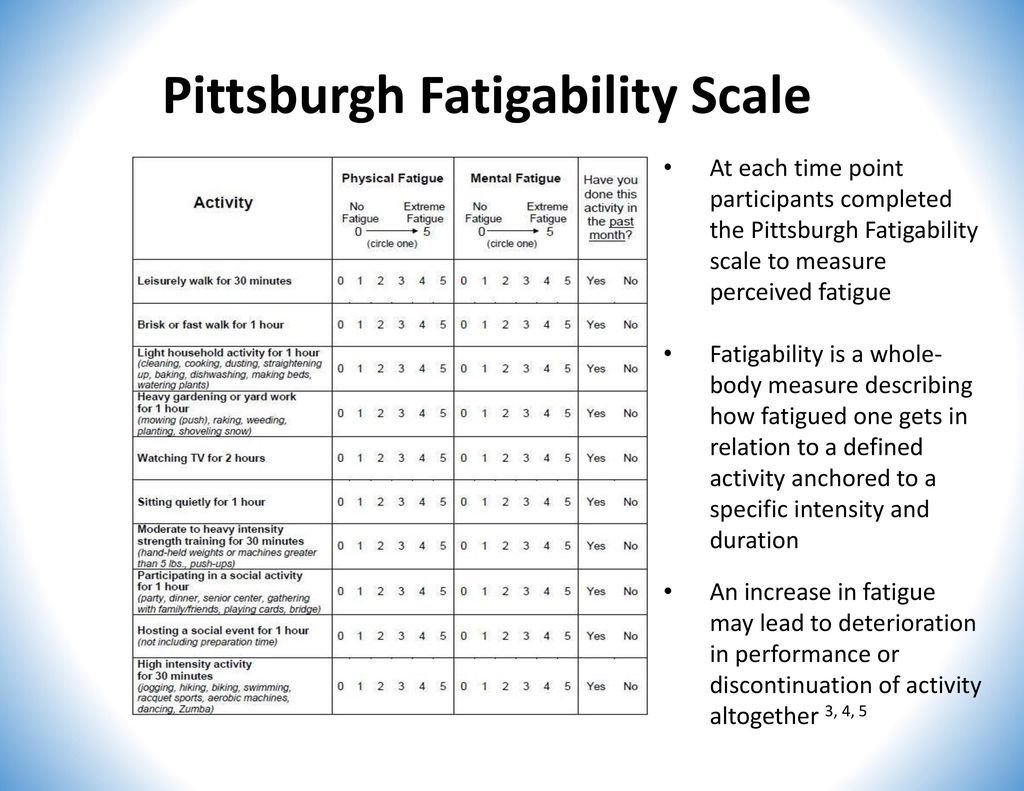Notes below from ideas I had a few weeks ago about a similar activity-based fatigability scale. I was in thinking mode about how we could do this ourselves but it's pretty obvious that this is a professional project so I left it at that. Just for discussion, but I think there is some value in the general concept of a common activity-based scale.
It's mostly rough notes but it's nice to see someone thinking along the same lines.
---
Defining criteria for recovery and remission for ME.
The only reliable group that can create subjective criteria for those concepts are the patients themselves. Let’s do this.
Basically choose a set of common activities, rate how much you could do before vs how much you could do now and how much you would consider acceptable to self-manage.
Steps:
- Define a group of common activities
- Find from population estimates the amount of hours you could sustain each activity at an effortless pace just before getting sick and establish a pertinent scale based on patient experience
All the psychosocial research is built around self-report. This is on equal footing, in fact could be even better if we have a larger sample size.
Bonus point that it will highlight the enormous gap. I personally have lost about 95% capacity. Most people, including medical professionals, would assume 10-15% at most. That’s enormous.
Tier the activities from light to heavy. From enjoying a day at the beach to high-intensity training. It should go from trivial things that anyone who isn’t sick, say from a flu or food poisoning, is able to do without any effort all the way to activities that require significant effort. This creates a clear cut-off point past which ME patients cannot do.
3 tiers: light, moderate, high. All tiers should be sustainable by a healthy person should be able to sustain for:
- Light: 8h without burden and 16h with burden
- Moderate: 4h without burden and 8h with burden
- Heavy: 2h without burden and 4h with burden
Those activities should be rated as doable without payback, sustainable long-term without eating into overall capacity. Put another way: if it were a job that could sustain you very well financially, you could sustain it indefinitely.
To emphasize can’t vs. won’t, assume those are in a supporting context, where everything else aside, there is no added hardship such as the soul-crushing boredom of some work environments (good bosses, good coworkers, rewarding environment, great pay, etc).
Example activities (should be sorted from low to high effort):
- Grocery shopping
- Lawn mowing
- Walking around a city
- Cleaning the house
- Cooking
- Reading a book
- Playing a challenging video game
- Writing
- Playing a musical instrument (learning works)
- Talking to a friend
- Playing baseball or cricket
- Playing ice hockey
- Shoveling snow or dirt
- Playing a board game with friends
- Driving a car
- Skiing
- Customer service
- Talking on the phone
- Answering a questionnaire
- Watching a movie or TV show a home
- At the cinema
- Attending class on a light topic
Also need to answer how long in days you could continue doing this every day. Basically allow from once a year to all day. You could pleasantly do 4 hours of shopping but could likely do 12-16 if you had to.
How much would you want to do vs how much could you maximally do. What would be a burden vs. what wouldn’t.
Answer at your best, your most common and your worst.
We could ask the PACE participants (verified but anonymous) to answer this questionnaire and compare.
We can easily have controls, it’s an easy questionnaire. Facebook is pretty good for this.
We can do two arms: verified and self-reported. A batch coming from clinics run by specialists that confirm the diagnosis and another made of self-reported diagnoses for those who don’t have a useful GP.
We could add the option to name a physician that would be contacted to confirm the diagnosis, for those who have a useful GP that isn’t particularly known for treating ME, so we can expand the pool. And we could ask those GPs to refer their other patients if they have some.

